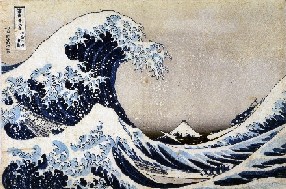I will start with a brief description of Japan-EU relations.
31 years ago, namely in 1975, as the relationship became more mature, the government of Japan decided to open its Mission to the then European Communities in Brussels.
On the Governmental level
In 1983, regular dialogues started to take place twice a year at the Ministerial level for Foreign Affairs. In addition, several ministers initiated discussions in their respective domains.
In 1991, with a view to further promoting the relations, Japan and the EU decided to raise their communication to the highest level; that is to say, the Prime Minister on the Japanese side, and the President of the European Commission and the Head of State or Government of the rotating presidency of the Council of the EU on the European side.
This Japan-EU annual summit has since been held in Japan and Europe alternately. This year, the 15th summit will continue the tradition in Tokyo. Exchange of views between senior officials of two sides has also become frequent. It is also worth noting that other high level communications are successfully taking place in the form of exchanges between members of the Japanese and European Parliaments, especially through annual "Japan-EU Inter-parliamentary Meetings".
I do not need to emphasize that all these dialogues and contacts have contributed greatly to the furtherance of mutual understanding and enhancement of the Japan-EU relations.
On the Business Level
As for the business aspect of our relations, dialogues between people in business on both sides became active in the early 80's.
Ever since 1999, these dialogues have taken shape in the form of the Japan-EU "Business Dialogue Round Table", or BDRT. There, business people discuss issues of common interest to improve their business environments. At the beginning, trade issues occupied a major part. Subsequently, various other economic issues have emerged on the agenda.
The BDRT is not just a private forum. It annually expresses its opinions and suggestions to political leaders of Japan and the EU for further improvement of the economic environment.
Their contributions in this field are not negligible. One of the best examples is that, in 2004, the BDRT submitted a policy proposal on establishing a framework for mutual efforts to facilitate an increase in foreign direct investment.
Following the proposal, the Japan-EU Summit of that year adopted several important documents for effective cooperation between Japan and the EU, and they included "Cooperation framework for Promotion of Japan-EU Two-way Investment".
People to People Exchange
Let me also explain about the Japan-EU relations from cultural and social perspectives.
As you may already be aware, 2005 was designated as the "Japan-EU Year of People-to-People exchanges". Many of you here may even have attended some of its activities.
In fact, although only recently becoming a member state, Poland didn't miss the opportunity to deepen mutual understandings between Japan and the EU as well as between Japan and Poland in this exchange year. As you can imagine, these events contributed greatly to further personal and cultural exchanges between the peoples. I learned that about 100 events were held in Poland within this framework. Number of the events held in Japan and EU member countries exceeded 1900 in total, about 400 in Japan and the rest in the EU countries.
I believe that we should continue to promote such exchanges, in order to strengthen the foundation of our relationship.
Without such a solid basis at the grassroots level, political and economic exchanges would remain superficial.
(Change in the nature of the relations)
Ladies and Gentlemen,
The world scene has changed dramatically since the fall of the Berlin wall, and is still changing. Faced with the changes on the international political stage, Japan and Europe have been trying to adapt as best as they could. The application of the Maastricht and Amsterdam treaties, for example, prepared the ground for a more stable Europe.
In addition, the introduction of the "Common Foreign & Security Policy" and the "European Security and Defence Policy" started to gradually modify Europe's image in the international political arena.
Japan on its part began to re-examine its role and responsibilities in the world. The need for Japan to contribute to peace and stability, as well as prosperity in Asia, the Middle East and other regions became more accepted in the debates of the Japanese people.
Nevertheless, it took Japan and the European Union ten years after the fall of the Berlin wall, to fully comprehend the need to expand the scope of dialogues on international political affairs.
Indeed, it was at the Japan-EU Summit held in 2001 that Prime Minister Koizumi and then President Prodi of the European Commission agreed on a "10-year Action Plan for Japan-EU Cooperation". This Action Plan encompassed a wide range of political issues of international importance as well as economic, social and cultural areas.
September 11 only added the importance of political dialogue addressing, in particular, the threat of terrorism. The weight of the role to play for Japan and the EU in the international community is increasing, and Japan-EU consultations on international political affairs have become more frequent.
